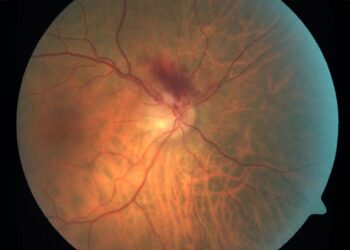TOPLINE:
An analysis of irritable bowel syndrome (IBS)-related posts on X reveals discussions spanning symptoms, dietary triggers, peer support, and mental health — suggesting that traditional healthcare settings may not fully meet patients’ needs and underscoring the value of integrating social media insights into IBS care models.
METHODOLOGY:
- Social media platforms like X are frequentlly used to share health experiences and provide patient-generated insights.
- Researchers analyzed 12,345 IBS-related posts on X (April 2006-August 2024), using search terms capable of capturing user experiences and concerns.
- The dataset was processed to retain relevant information from texts and emojis. Posts with fewer than three words were removed.
- Sentiment analysis (score range, -1 to +1) was applied to 8864 posts, which were classified as positive, neutral, or negative.
- Topic modeling was applied to 2532 posts with ≥ 50 words to identify core subjects and themes.
TAKEAWAY:
- Sentiment was primarily neutral (45.9%), followed by positive (35.4%) and negative (18.7%), suggesting that users often shared advice or information rather than strong emotions. Sentiment remained relatively consistent over time, with fluctuations linked to major IBS-related milestones (eg, new diagnostic criteria, high-profile publications, awareness campaigns).
- Main post themes included physical symptoms (15.6%), diet/triggers (15.1%), social support (14.2%), comorbidities (12.2%), research and treatment (12.2%), quality of life (12.0%), awareness (11.5%), and mental health (7.2%).
- Posts on physical symptoms had the highest proportion of negative sentiment (32.4%), whereas social support post were the most positive (53.7%). Mental health and research/treatment posts were mostly neutral due to their educational or informational nature.
- Post contributors included self-identified IBS patients (61.3%), healthcare professionals (12.8%), organizations/advocacy groups (10.5%), and general commenters (15.4%).
IN PRACTICE:
“Patients turn to social media primarily because of unmet informational needs regarding day-to-day symptom management (evidenced by the prevalence of dietary and trigger discussions) and desires for experiential validation that clinical encounters may not provide (demonstrated by the high engagement with personal narrative content),” the authors wrote.
SOURCE:
This study was led by Ravi Shankar and Alexander Wenjun Yip, Alexandra Hospital in Singapore. It was published online in Scientific Reports.
LIMITATIONS:
Data were limited to X and may not reflect the entire spectrum of online IBS discussions. Users not active in online discussions — especially older adults or those with limited digital literacy/access — may have been underrepresented.
DISCLOSURES:
This study did not receive any specific grant funding. The authors declared having no competing interests.
This article was created using several editorial tools, including AI, as part of the process. Human editors reviewed this content before publication.
Source link : https://www.medscape.com/viewarticle/social-media-reveals-ibs-woes-missed-clinics-2025a1000jyo?src=rss
Author :
Publish date : 2025-07-29 06:35:00
Copyright for syndicated content belongs to the linked Source.














